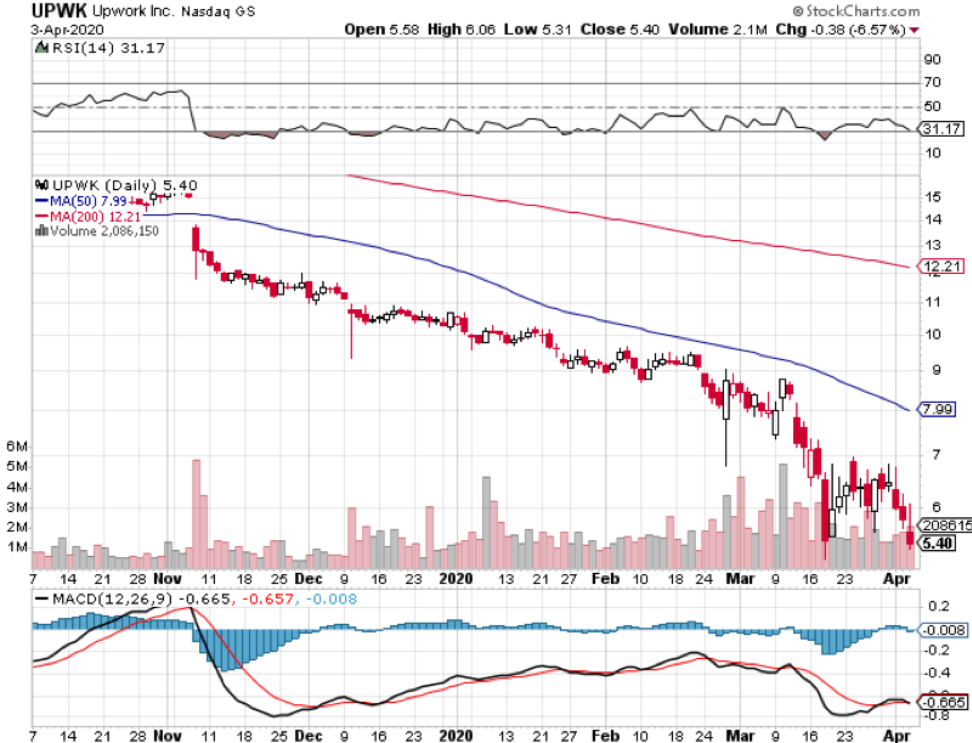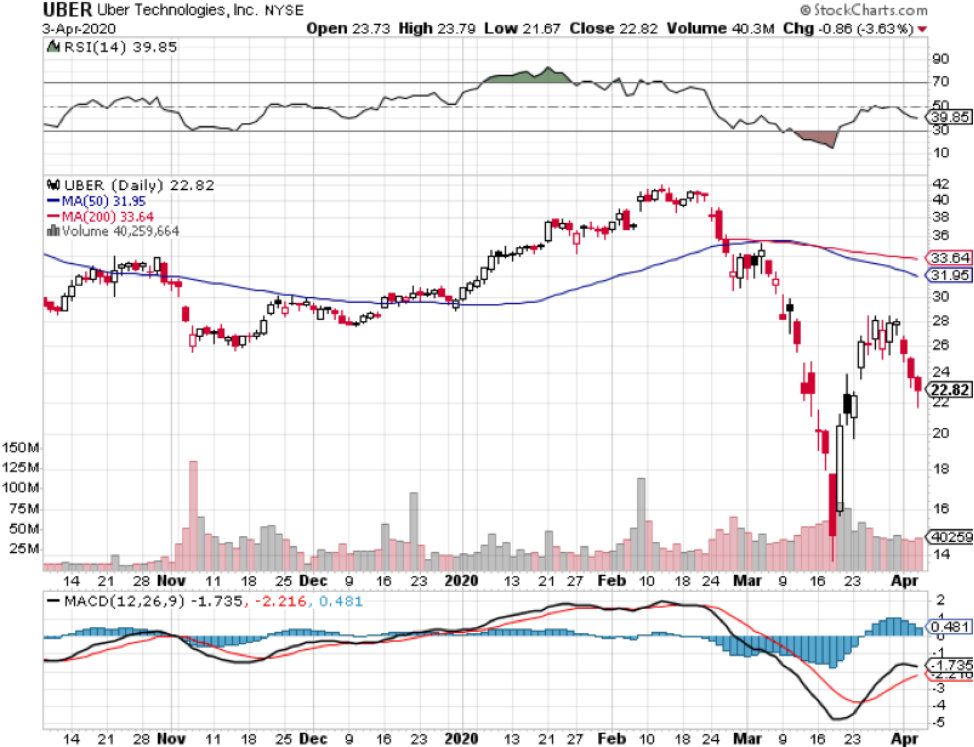Avoid the Gig Economy Like the Plague
I assume many believe that stock-picking is the path to riches, and the post-coronavirus environment will eventually appear to offer investors new opportunities.
It’s also important for investors to avoid the rotten parts of the tech market.
The gig economy could enter the post-health crisis tech economy as huge losers, as already weak business models must absorb even more pressure.
Let me remind you that this pocket of the economy is not the gold standard of Silicon Valley and exists primarily because of the never-ending capital that propped up many poor business models.
Well, that funding is gone in this new world.
The health scare has already crushed the 2020 IPO market and the newly public companies are next in the crosshairs whom many are nothing more than labor arbitrage companies masquerading as real tech companies.
Examples such as Uber (UBER) and Lyft (LYFT) are predatory in behavior, feasting off contractors who do not have a unified voice.
An investor wouldn’t be wrong to say these are nothing more than glorified taxi companies utilizing a functioning app.
The gig economy effectively matches the digital workforce with a suitable “tech” company, but they do not deliver anything else of value.
These types of “broker” services can be eliminated quickly if tech companies choose to hire gig workers directly.
Even tech companies that only hire gig workers do it themselves - ask Uber drivers how easy it is to start working for them.
I reference Uber because they were responsible for 58% of gig worker payouts reaching $204 billion in 2018.
Payout volume is expected to double by 2023, but that was until the worst economic recession since the Great Depression of 1929 hit U.S. shores.
Let’s quickly analyze a weak gig economy company that wasn’t doing great before the health scare called Upwork.
Upwork (UPWK), formerly Elance-oDesk, is a global freelancing platform where businesses and independent professionals connect and collaborate remotely.
Upwork’s life as a public company has only seen the share price decline -hitting a high of $24 per share in February 2019 and currently sitting at $5 today.
Why have shares declined precipitously since going public?
Wasn’t the gig economy working miracles and was a slice of life I needed to become a part of?
Even as the freelance employee hiring platform grew revenue 19% in 2019, shares have tumbled nearly 75% from their all-time high.
Granted, the market needed to reexamine the business based on current expectations, and yes, the coronavirus market sell-off hasn't helped matters.
Economic activity is about to nosedive, many businesses have already begun to cut spending and reduce staff.
The swiftest way of reducing expenditures is by eliminating business contractors or non-employee workers that get hired on a freelance basis from Upwork.
Upwork receives a commission by liaising workers with tech companies and that business is sure to be severely damaged.
Since Upwork went public, the company increased sales and marketing spend by more than 31% in 2019 to promote growth because the company is simply not relevant.
Making the story even worse, the general and administrative costs also grew 36% year over year.
Upwork's revenue is not rising at the same type of rate that justifies higher administrative and marketing spend.
This business model simply never worked and now that a monstrous recession has hit, imagine how terrible future prospects look now.
The only silver lining is that industry will migrate to digital spaces quicker but that in no way guarantees that Upwork will harvest the benefits from this massive migration.
Work-from-home just got a massive shot in the arm, and many organizations are suddenly scrambling to invest in the ability to allow employees to work remotely and could a possible use case enrich Upwork?
But why can’t these same companies hire directly?
Nobody really knows Upwork anyway and since the shortage of jobs will become acute, directly communicating about possible jobs could harvest more than enough qualified candidates without the help of unknown Upwork.
Another imminent problem is the balance sheet.
Upwork had $133.9 million in cash, equivalents, and short-term investments on its balance sheet at the end of 2019, but if that is frittered away, is this company attractive enough to receive another round of funding?
I would say probably not and if yes, only on disadvantageous debt terms.
This firm is merely treading water before it gets shot out of its misery.
Upwork overspends and under delivers; a toxic combination and that was its performance in a period of favorable economic times.
What about other gig economy firms?
There is not one I like, again, they overspend and underdeliver with illogical revenue acquisition costs, but the silver lining for Uber and Lyft is that everyone knows who they are so they will be able to survive on poor unit economics for a while until they cannot.
Time is money and the risk of not getting torpedoed in one second is valuable in the current climate as revenues have gone to 0% for hotels and bars.
These glorified taxi companies have one ace up their sleeve and that is pushing the self-driving service revolution because that is their get-out-of-jail free card.
Upwork doesn’t have that luxury as they will look to survive now before their stock becomes a zero with a brand name that doesn’t resonate with investors.
Avoid the stock of all companies that are tied to the gig economy.




